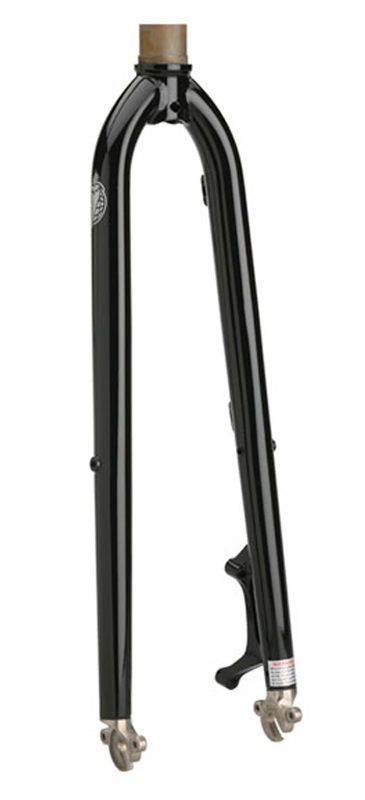On June 6, 2013, the Chicago City Council approved the
2013 Bicycle Safety Ordinance. Changes to the Chicago Municipal Code must first pass a committee and then go to a vote before the entire Chicago City Council made up of the City's aldermen. The proposed changes, sponsored by Mayor Rahm Emanuel himself, were originally presented to the City of Chicago's Committee on Pedestrian and Traffic Safety on May 8th and then passed in the City Council .
The Ordinance changes many of the provisions of the Chicago Municipal Code as they relate to bicycling. The changes to the Chicago Municipal Code increase fines for motorists who injure bicyclists, but also increases fines for scofflaw bicyclists who break the law. The overall goal of the 2013 Bicycle Safety Ordinance is to decrease the number of bicycle accidents and crashes in Chicago. Here is a general Legislative Analysis of the 2013 Bicycle Safety Ordinance:
Amendment to 9-4-025 Bicycle Safety Violation - Penalty
Current Law: The penalty for interfering with a bicyclist while
turning, riding in the bike lane or passing, was $150.00 total. The
penalty for causing a collision while turning, riding in the bike lane
or passing was $500.00. The penalty for not exercising due care and
interfering with a bicyclist was $150.00; the same act that results in a
collision was potentially $500.00. The penalty for interfering with a
bicyclist with a car door could result in a penalty of $150.00, a
dooring that results in a collision could be a penalty of $500.00.
Amendment: Not yielding the right of way to a bicyclist while
turning, riding in the bike lane, or not yielding the right of way while
passing or otherwise interferes with a bicyclist could result in a fine
of $150.00 for EACH offense. The same acts that result in a collision
results in a mandatory fine of $500.00 . A dooring that interferes with a
bicycle will carry a mandatory fine of $300.00; causing a collision in a
dooring would result in a mandatory fine of $1,000.00.
Amendment to 9-40-060 Driving, standing or parking on bicycle paths or lanes prohibited
Current Law: No vehicle may impede a bike path or lane.
Amendment: Language is added to clarify that a bus may stop in a
bike lane at a bus stop to load and unload passengers, if the bus has an
emergency, or during overnight hours as necessary in an intersection if
it is easier to load or unload passengers at that location.
Amendment to 9-48-050 Buses - Stopping, standing and parking
Current Law: Only buses may operate in designated bike lanes.
Amendment: If a lane is marked for buses AND bicycles, then the
bus must yield to the bicycle until it is safe to pass the bicycle and
the bicyclist.
Amendment to 9-52-010 Rights and duties
Current Law: A person riding a bicycle who violates the Chicago Municipal Code would be fined $25.00.
Amendment: A bicyclist, unless specifically provided elsewhere in the Code, would face a fine of $50.00 to $200.00 for each offense.
Amendment to 9-52-020 Riding bicycles on sidewalks
Current Law: Bicyclists over the age of 12 should not ride on sidewalks.
Amendment: Bicyclists of any age may ride on the sidewalks
outside of the Loop if the sidewalks is marked as a bicycle route, is
used to enter the nearest street or to get to a bicycle sharing station.
Amendment to 9-52-040 Yielding right-of-way
Current Law: A bicyclist should ride as near as is practicable to the right side of the road.
Amendment: A bicyclist may ride as near as is practicable AND
safe to the right side, meaning a bicyclist can move to the left to pass
another bicycle, in order to turn left, to avoid hazards, or to
navigate a right turn. A bicyclist may also pass on the right of a
slower moving motor vehicle or bike. However, if a vehicle (i.e. cab) is
letting out passengers from its right side, the bicyclist must yield to
pedestrians or pass on the left. If the street is a one-way street with
two or more lanes, the bicyclist may also ride alongside the left side
of that one-way street.
Amendment to 9-52-045 Bicycle operator's signals - Hand and arm - Manner
Current Law: This specific section as it pertains to bicycles is new.
Amendment: Adds precise language, specific to bicycles, as to the
required hand and arm signals for a bicyclist. A left turn is with the
left hand and arm extended horizontally; A right turn is the left hand
and arm extended upward or right hand and arm extended horizontally; a
stop of slow down is the left or right hand and arm extended downward.
Amendment to 9-24-030 Crosswalks - Pedestrians to have right-of-way
Current Law: Pedestrians have the right-of-way over vehicles at a plainly marked crosswalk at an intersection or between intersections.
Amendment: Pedestrians have the right-of-way over vehicles (including bicycles) at any crosswalk, plainly marked or not.
Amendment to 9-60-050 Pedestrian to yield right-of-way when
Current Law: Pedestrians had to yield right-of-way to vehicles unless crossing in a marked crosswalk.
Amendment: Pedestrians have the right-of-way over vehicles
(including bicycles) anytime they are in a crosswalk, whether or not
that crosswalk is marked.
Attorney Mike Keating of Keating Law Offices is a trial lawyer in Chicago, Illinois who focuses his practice on representing bicyclists injured in bicycle accidents or crashes in Illinois. He is a former attorney for the Illinois House of Representatives in Springfield and is currently a member of the Legislative Committee for the Illinois Trial Lawyers Association. If you have any questions regarding this post or an issue involving Illinois personal injury law, please contact Mike Keating at 312-208-7702 or
MKeating@KeatingLegal.com 24 hours a day, 7 days a week. All e-mails and phone calls are returned promptly.




